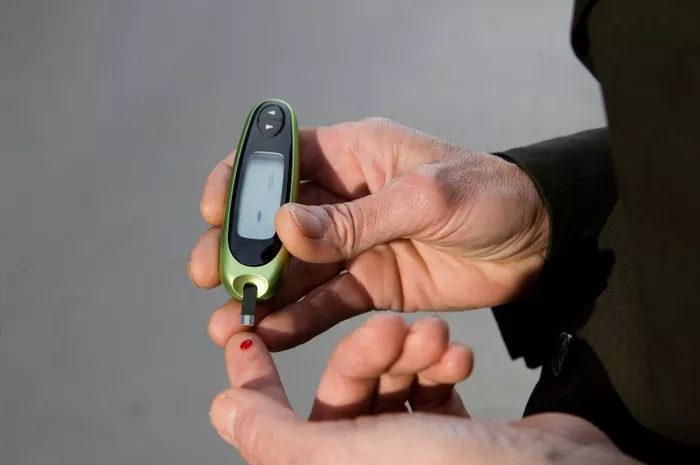Understanding Hyperglycemia
Hyperglycemia occurs when blood glucose levels exceed normal ranges. It can result from insufficient insulin production or ineffective utilization of insulin by the body’s cells. Persistent hyperglycemia can lead to serious health complications, including cardiovascular disease, nerve damage, kidney damage, and vision problems. Managing hyperglycemia typically involves a combination of lifestyle changes, medication, and dietary adjustments.
The Role of Diet in Managing Hyperglycemia
Diet plays a crucial role in managing blood glucose levels. Key dietary strategies include:
Consuming Low-Glycemic Index Foods: Foods that cause a gradual increase in blood glucose levels are preferable.
Increasing Fiber Intake: Fiber slows the absorption of glucose, helping to stabilize blood sugar levels.
Balancing Macronutrients: A balanced intake of carbohydrates, proteins, and fats helps in maintaining steady blood glucose levels.
Lemon Water: Nutritional Profile
Lemon water is a simple beverage made by adding lemon juice to water. It is commonly consumed for its refreshing taste and purported health benefits. Its nutritional components include:
Vitamin C: Lemons are rich in vitamin C, an antioxidant that supports immune function and overall health.
Citric Acid: This organic acid contributes to the tart flavor of lemons and has potential health benefits.
Flavonoids: Lemons contain flavonoids, such as hesperidin and diosmin, which have antioxidant and anti-inflammatory properties.
Impact of Lemon Water on Blood Glucose Levels
To determine whether lemon water is beneficial for managing hyperglycemia, it is essential to examine its effects on blood glucose levels and related mechanisms.
Glycemic Index of Lemon Water
The glycemic index (GI) measures how quickly a food or drink raises blood glucose levels. Foods and beverages with a low GI cause slower, more gradual increases in blood glucose. Lemon water is unlikely to have a significant impact on blood glucose levels due to its low carbohydrate content and negligible caloric value.
Citric Acid and Blood Sugar Control
Citric acid, a primary component of lemon juice, may influence blood glucose levels. While citric acid itself does not directly affect blood glucose, it can impact digestion and the absorption of carbohydrates. By slowing the digestion of carbohydrates, citric acid may contribute to a more gradual increase in blood glucose levels.
Vitamin C and Insulin Sensitivity
Vitamin C, abundant in lemons, has been studied for its potential effects on insulin sensitivity. Research indicates that vitamin C may play a role in improving insulin sensitivity and reducing oxidative stress, which is linked to insulin resistance. For instance, a study published in Diabetes Care found that vitamin C supplementation improved insulin sensitivity in individuals with type 2 diabetes.
Flavonoids and Metabolic Health
Flavonoids in lemons, such as hesperidin, have been shown to possess anti-inflammatory and antioxidant properties. These compounds may help reduce inflammation and oxidative stress, which are associated with insulin resistance and hyperglycemia. A study in the Journal of Nutritional Biochemistry suggested that flavonoids could improve glucose metabolism and insulin sensitivity.
Practical Considerations for Including Lemon Water in Your Diet
While lemon water can be a refreshing and low-calorie beverage choice, it is important to consider how it fits into a broader dietary strategy for managing hyperglycemia.
Incorporating Lemon Water into a Balanced Diet
Hydration: Lemon water is an excellent way to stay hydrated, which is essential for overall health and proper metabolic function. Adequate hydration helps maintain healthy kidney function, supports digestion, and can contribute to better blood glucose control.
Avoiding Excessive Sugar: Ensure that lemon water is consumed without added sugars or sweeteners, which can negate its potential benefits and adversely affect blood glucose levels.
Combining Lemon Water with a Balanced Diet
Fiber-Rich Foods: Complement lemon water with meals that are high in fiber to further stabilize blood sugar levels. Fiber-rich foods include vegetables, whole grains, legumes, and fruits with a low glycemic index.
Protein and Healthy Fats: Incorporate sources of protein and healthy fats to balance meals and reduce postprandial blood glucose spikes.
Research and Evidence
Current research on lemon water specifically for hyperglycemia is limited. However, the individual components of lemon water—such as vitamin C, citric acid, and flavonoids—have been studied for their potential benefits in managing blood glucose levels and improving insulin sensitivity.
Vitamin C Studies: Several studies have explored the impact of vitamin C on insulin sensitivity and glycemic control. For example, a study published in Clinical Nutrition indicated that vitamin C supplementation might improve glycemic control in individuals with type 2 diabetes.
Flavonoid Research: Research on flavonoids, including those found in lemons, suggests that these compounds may have beneficial effects on glucose metabolism and insulin sensitivity. A study in the American Journal of Clinical Nutrition highlighted the potential role of flavonoids in improving metabolic health.
Potential Considerations and Drawbacks
While lemon water can be a beneficial addition to a balanced diet, there are some considerations to keep in mind:
Acidity and Dental Health: The acidity of lemon water may erode tooth enamel over time. To mitigate this, drink lemon water through a straw and rinse your mouth with plain water afterward.
Individual Responses: People with hyperglycemia may have varying responses to different dietary changes. It is important to monitor blood glucose levels and adjust dietary choices based on individual needs and responses.
See also: What You Can Do for Hyperglycemia
Conclusion
Lemon water, with its low carbohydrate content and potential benefits from its components, can be a helpful addition to a diet designed to manage hyperglycemia. Its impact on blood glucose levels is likely minimal, but the presence of vitamin C, citric acid, and flavonoids may offer additional benefits related to insulin sensitivity and metabolic health. As part of a comprehensive approach to managing hyperglycemia, lemon water can contribute to hydration and overall wellness. However, it should be consumed as part of a balanced diet that includes fiber-rich foods, adequate protein, and healthy fats. As with any dietary change, consulting with a healthcare provider or registered dietitian can help tailor recommendations to individual health needs and goals.
Related topics:



























